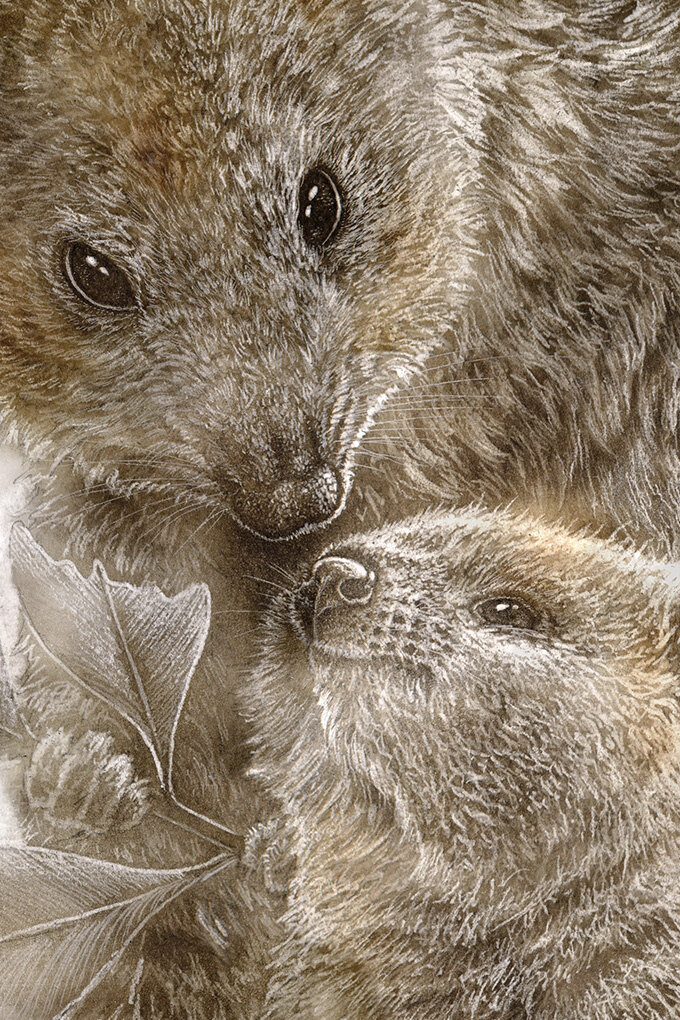Red-tailed Black Cockatoo





Red-tailed Black Cockatoo
Limited Edition Prints: Total Release of 50
Certificate of Authenticity included
Ratio 1:1 from Original
Image Size: 390w x 570h mm
Signed by Artist with Title and Individual Number
Actual Print does not contain watermark
Print is carefully wrapped in a protective sleeve and tube for shipping
For more information please refer to our Terms of Service
Boxed set of Greeting Cards and Thank You card
Inspiration: Our native parrots are truly special and so beautiful! I love that the females of this species are more stunning than the males, though from an artist’s perspective - far more difficult to draw. This lady is older but just like a fine wine, she only gets more captivating with age. To put the scorch through all the yellow details in her feathers would be too high a risk of burning a hole through the paper (!) - So for this one I’ve used Yellow Ochre and some Crimson Red watercolour to bring out her sunset colours.
Known as Banks’ Black Cockatoo, it was named for Joseph Banks who toured with Captain James Cook on the HMS Endeavour as they explored the coastline of Australia in 1770. The Red-tailed Black Cockatoo is the largest species of cockatoo endemic to the mainland. It’s regal crown, glossy black plumage, and colourful tail are iconic! The female is unusual in the bird world as she is more colourful than her male counterpart with yellow, orange, and red scalloping throughout her head, body, and wings. Although the species flourishes in many regions, it is the south eastern subspecies that has not adapted to the habitat losses caused by human activity. As an ecological specialist, it relies on specific natural vegetation for food. Efforts are underway to support an increase of populations.
Artworks by Maegan Oberhardt highlight many species of wildlife native to Australia. This piece forms part of a collection of artwork that expands environments, composition, and the use of compatible media within the piece. The primary connection within her art is in the technique. It is man-made fire burning paper (which is a by-product of trees). This comments on the conflict between man and nature. The result of that conflict is that most wild species are directly impacted by man’s carbon footprint.
This series has had a foundation of watercolour painted on the sketch to create a more accurate depiction of the subject. In addition, soot was utilised to achieve the variety of charcoal greys present in the finished artwork.









